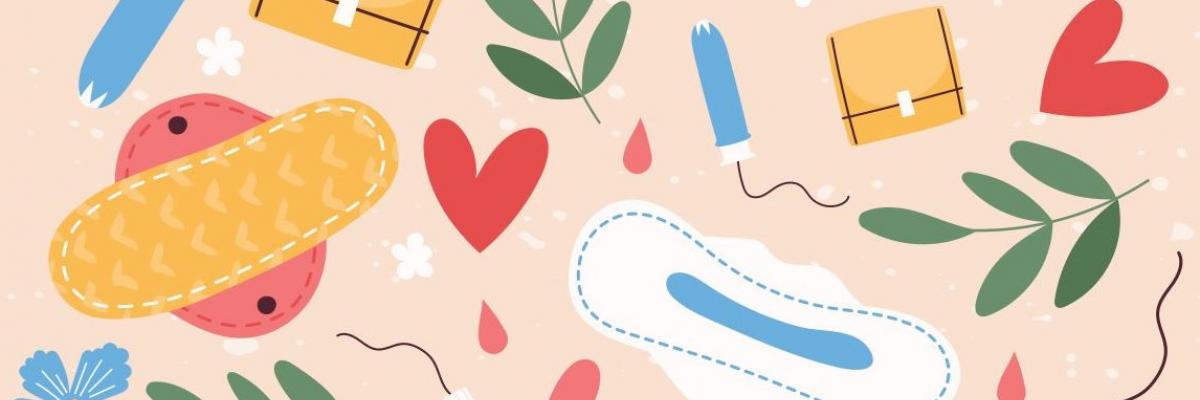Fighting Period Poverty

We got you. Period.
Caught out? Struggling to choose between period products and other essential expenses?
Menstrual wellbeing is a human right. Access to period products can increase student focus and productivity by removing the worry of periods arriving unexpectedly or not being able to afford period products.
Free, organic pads and tampons are now available across all University of Adelaide Campuses in a variety of locations. Check your campus for specific locations below.
If you require more than what is available in the locations below, please email studentwellbeing@adelaide.edu.au for more options. Please include 'period poverty' in the subject line and a team member will be in touch.
Locations
-
North Terrace
Nexus 10 Building - Basement Level - New Vending Machine
Ask Adelaide - Level 3, Hub Central.
Barr Smith Library, Level 3, Female bathroom (behind Ask Library).
Helen Mayo North - Female bathroom, ground floor.
Ligertwood Building - Female bathroom, ground floor.
Women's Room - Level 8, Hughes Building.
YouX HQ- Level 4, Hub Central.
-
AHMS
All gender bathroom - Level 3, west side - New Vending Machine
-
Roseworthy
College Hub, Roseworthy - New Vending Machine
Female bathroom - Roseworthy Hub, Roseworthy College Hall.
-
Waite
Student Hub, Waite Campus - New Vending Machine
WIC building (Wine Innovation Central) Level 3 and 4 - Female toilets.
Frequently asked questions
-
What exactly is period poverty?
Period Poverty refers to the experience where someone cannot access or afford appropriate period products or education.
It is experienced by people who menstruate all over the world, including Australia. Research about period poverty is limited, however some evidence shows that poor menstrual management can affect people's emotional and physical health and influence their behaviour such as school and work attendance, participation in sports and socialising.
-
How did this project come about?
Members of YouX Student Representative Council advocated to utilise a small pool of existing funds to provide free period products to students in various locations on campus. Recognising the importance of menstrual hygiene on student wellbeing and the need for a broader reaching project, the Student Health and Wellbeing team secured funding to roll-out the current project.
-
Who can access the free period products on campus?
The funding allows the University to provide free period products to any student who menstruates including women, girls, transgender and gender diverse people.
-
What period products are available?
Free paper wrapped organic tampons (6 per pack) and plastic free organic pads (x2) are provided via the vending machines. Students who require access to larger amounts of product can visit the pink locker on Level 3 of Hub Central, North Terrace.
-
How were the locations of vending machines selected?
Student Health and Wellbeing received funding to install and stock 5 vending machines. The priority was to ensure that at least one vending machine was available on each University campus. Locations were also determined based on the availability of free period products in other locations e.g. period products are already available at Ask Adelaide and YouX in Hub Central at North Terrace as well as high traffic areas.
The installation of vending machines required collaboration with the Infrastructure team to ensure there was no impact on occupational health and safety requirements.
-
Why weren't the vending machines placed in female bathrooms?
The project aims to provide free period products to all students who menstruate, regardless of the bathroom they use or the gender they identify with. It is important for these products to be accessible to all students, including those who may require an all-gender or accessible bathroom.
-
Are there plans to add vending machines in more locations?
The first 12-months of this project was a pilot, distributing free period products across a number of locations both in bathrooms and public spaces to assess need. The second phase of the project is the installation of the vending machines. Plans are underway to consult students and evaluate the success of the current project and review locations of existing machines to determine next steps.
